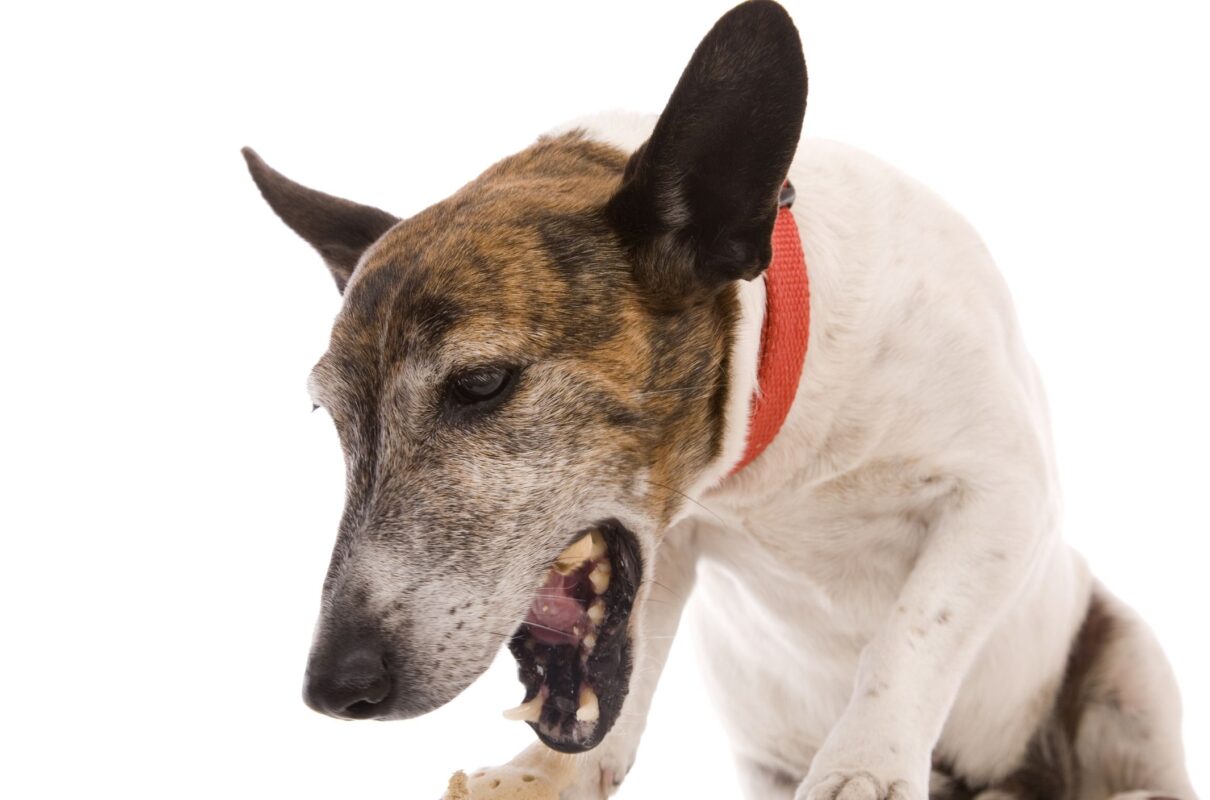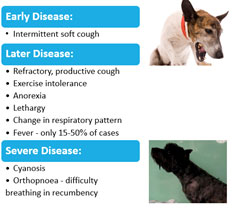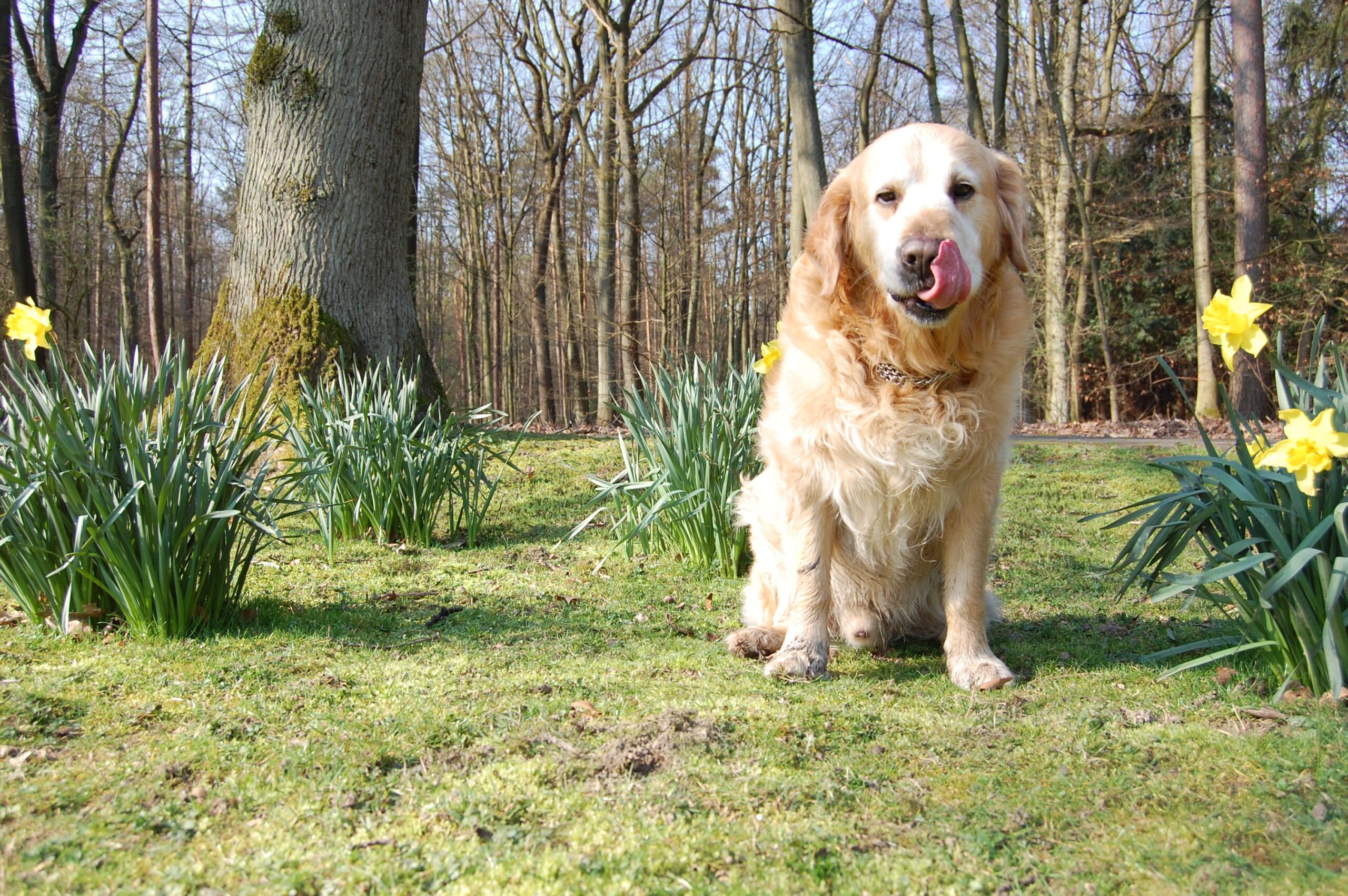Dog Pneumonia Recovery: How Long Until Your Pup Bounces Back in 2024?
When our beloved canine companions fall ill with pneumonia, it’s natural to worry about their recovery. How long does it take for a dog to bounce back from this serious respiratory condition? We’ll explore the…
When our beloved canine companions fall ill with pneumonia, it’s natural to worry about their recovery. How long does it take for a dog to bounce back from this serious respiratory condition? We’ll explore the factors that influence a dog’s recovery time from pneumonia and provide insights into the healing dog pneumonia process.
Pneumonia in dogs can be a challenging illness, with recovery times varying from a few weeks to several months. The severity of the condition, the underlying cause, and the dog’s overall health all play crucial roles in determining the length of recovery. We’ll investigate into the typical timeline for recovery, discuss proper care techniques, and highlight the importance of veterinary guidance throughout the healing journey.
Understanding Dog Pneumonia
Pneumonia in dogs is a serious respiratory condition that affects the lungs, causing inflammation and fluid buildup in the alveoli (air sacs). This inflammation interferes with the normal functioning of the lungs, making it difficult for dogs to breathe properly and exchange oxygen effectively.
Types of Pneumonia in Dogs
There are several types of pneumonia that can affect dogs:
- Bacterial pneumonia: The most common type, caused by various bacteria entering the lungs.
- Viral pneumonia: Resulting from viral infections affecting the respiratory system.
- Fungal pneumonia: Caused by fungal organisms, often in dogs with compromised immune systems.
- Aspiration pneumonia: Occurs when foreign substances, such as food or liquid, enter the lungs.
Causes and Risk Factors
Pneumonia in dogs can stem from various sources:
- Bacterial infections (e.g., Bordetella, Mycoplasma, Streptococcus)
- Viral infections
- Fungal pathogens
- Inhalation of irritants or chemicals
- Aspiration of food, water, or vomit
- Underlying health conditions
Certain factors increase a dog’s risk of developing pneumonia:
- Young age (puppies)
- Senior dogs
- Weakened immune system
- Chronic respiratory conditions
- Recent surgery or anesthesia
Symptoms of Pneumonia in Dogs
Recognizing the signs of pneumonia is crucial for early diagnosis and treatment. Common symptoms include:
- Persistent coughing
- Difficulty breathing or rapid breathing
- Lethargy and fatigue
- Loss of appetite
- Fever
- Nasal discharge (may be green, yellow, or bloody)
- Blue or gray gums (indicating lack of oxygen)
Diagnosis and Treatment
Veterinarians diagnose pneumonia through a combination of physical examination, chest X-rays, and laboratory tests. Treatment typically involves:
- Antibiotics for bacterial infections
- Antifungal medications for fungal pneumonia
- Supportive care, including:
- Oxygen therapy
- Fluid therapy to prevent dehydration
- Nebulization and coupage to help clear airways
- Rest and limited activity
The severity of the pneumonia and the dog’s overall health determine the exact treatment plan and recovery time. While mild cases may resolve within a few weeks with proper care, more severe cases can take several months for full recovery.
By understanding the nature of pneumonia in dogs, pet owners can better recognize symptoms and seek prompt veterinary care, improving their dog’s chances of a full recovery.
Types of Pneumonia Affecting Dogs
Pneumonia in dogs manifests in various forms, each with distinct causes and treatment approaches. Understanding these types helps in providing appropriate care and estimating recovery times.
Bacterial Pneumonia
Bacterial pneumonia is a common form of lung infection in dogs. It’s characterized by symptoms such as coughing, fever, lethargy, wheezing, and difficulty breathing. Treatment typically involves broad-spectrum antibiotics, which may be adjusted based on the exact bacterial strain identified. Additional therapies can include bronchodilators, expectorants, and oxygen therapy. Recovery time for bacterial pneumonia varies, ranging from a few days to several weeks. Follow-up X-rays are usually recommended every two weeks until the lungs are completely clear. Antibiotics may need to be continued for one to two weeks after symptoms improve to ensure complete eradication of the infection.
Aspiration Pneumonia
Aspiration pneumonia occurs when foreign materials enter a dog’s airways. This can happen due to the inhalation of food, water, medicine, or even saliva. Dogs with chronic vomiting or those undergoing anesthesia are at higher risk. Symptoms include coughing, difficulty breathing, and fever. Treatment focuses on supporting respiratory function and may include oxygen therapy, intravenous fluids, and antibiotics to prevent secondary infections. Recovery time depends on the severity of the aspiration and the dog’s overall health, typically ranging from one to three weeks. Close monitoring and supportive care are crucial during the recovery period.
Other Forms of Pneumonia
Dogs can also develop viral, fungal, and parasitic pneumonia. Viral pneumonia, often caused by canine distemper or influenza, requires supportive care as the dog’s immune system fights the infection. Fungal pneumonia, though less common, can be severe and may require long-term antifungal treatment. Parasitic pneumonia, caused by lungworms, needs exact antiparasitic medications. Recovery times for these forms of pneumonia can vary widely, from a few weeks to several months, depending on the severity and the dog’s response to treatment. Regular veterinary check-ups and follow-up tests are essential to monitor progress and adjust treatment plans as needed.
Signs and Symptoms of Pneumonia in Dogs
Recognizing the signs and symptoms of pneumonia in dogs is crucial for early detection and prompt treatment. Dogs with pneumonia often exhibit a range of clinical abnormalities that can vary in severity. Here’s a comprehensive list of common symptoms to watch for:
Respiratory Symptoms
- Coughing: A persistent, moist cough is often the primary sign of pneumonia in dogs.
- Wheezing: Difficulty breathing may cause audible wheezing or whistling sounds.
- Tachypnea: Rapid breathing is common in dogs with pneumonia.
- Dyspnea: Labored breathing, particularly during exertion, is a hallmark symptom.
- Shallow breaths: Dogs may take short, quick breaths due to discomfort.
Nasal Discharge
- Clear, yellow, or greenish nasal discharge
- Mucus may be thick and occasionally bloody
General Health Indicators
- Lethargy: Affected dogs appear more tired or less active than usual.
- Weight loss: Pneumonia can lead to decreased appetite and negative metabolic state.
- Weakness: Overall weakness is common in dogs with pneumonia.
- Fever: Elevated body temperature is typical in pneumonia cases.
- Loss of appetite: Dogs may show disinterest in food or difficulty eating.
Behavioral Changes
- Altered mentation: Changes in behavior or awareness may occur.
- Exercise intolerance: Reluctance to engage in physical activity is common.
- Fatigue: Dogs may tire easily and show reduced energy levels.
Severe Symptoms
- Blue, grey, or purple mucus membranes: Indicates poor oxygenation.
- Hyperventilating: Rapid, shallow breathing can occur in severe cases.
- Stumbling or disorientation: May indicate advanced stages of the illness.
- Dysphagia: Difficulty swallowing can be a symptom of pneumonia.
- Dehydration: Dogs may show signs of dehydration due to reduced fluid intake.
It’s important to note that these symptoms can vary depending on the type and severity of pneumonia. Bacterial pneumonia, for instance, may present differently from aspiration pneumonia. If you observe any combination of these signs in your dog, especially if they persist or worsen, it’s crucial to seek veterinary care immediately. Early detection and treatment significantly improve the chances of a full recovery and can reduce the overall recovery time for dogs with pneumonia.

Diagnosing Pneumonia in Dogs
Diagnosing pneumonia in dogs involves a comprehensive approach combining clinical examination, medical history evaluation, and various diagnostic tests. Veterinarians use several methods to determine if a dog has pneumonia:
Medical History
We start by reviewing the dog’s medical history. Key information includes:
- Recent episodes of vomiting
- Trauma
- General anesthesia
- Exposure to contagious agents (e.g., from shelters or boarding facilities)
Physical Examination
A thorough physical exam helps identify clinical signs associated with pneumonia:
- Use of a stethoscope to listen for abnormal breathing sounds (wheezing, crackles)
- Checking body temperature for fever
- Observing respiratory rate and effort
Diagnostic Tests
Several tests aid in confirming a pneumonia diagnosis:
- Chest X-rays
- Radiographs provide images of the lungs
- Vets evaluate for signs like:
- Pneumonia infiltrates
- Air bronchograms
- Pleural effusion
- Blood Testing
- Reveals clues associated with pneumonia:
- Elevated white blood cell count
- Signs of systemic infection
- Bronchial Lavage
- Collects samples from the lungs
- Helps identify exact bacteria causing the pneumonia
- Sample Collection
- Analysis of lung fluid or nasal discharge
- Identifies the type of bacteria present
| Diagnostic Test | Purpose | Key Findings |
|---|---|---|
| Chest X-Rays | Visualize lung condition | Infiltrates, air bronchograms, pleural effusion |
| Blood Testing | Check for infection markers | Elevated white blood cell count |
| Bronchial Lavage | Collect lung samples | Identify exact bacteria |
| Sample Analysis | Examine lung fluid/nasal discharge | Determine bacterial type |
Early and accurate diagnosis is crucial for effective treatment and faster recovery from pneumonia in dogs. If you notice any symptoms like persistent coughing, difficulty breathing, or lethargy, we recommend scheduling an appointment with your veterinarian promptly. A thorough examination and appropriate diagnostic tests will help determine the best course of treatment for your dog’s pneumonia, setting the stage for a successful recovery.
Treatment Options for Canine Pneumonia
Treating pneumonia in dogs requires a comprehensive approach customized to the exact type and severity of the infection. We’ll explore the various treatment options available to help your furry friend recover from this serious respiratory illness.
Antibiotics for Bacterial Pneumonia
Antibiotics are the cornerstone of treatment for bacterial pneumonia in dogs. The choice of antibiotic depends on the results of culture and sensitivity testing:
- Doxycycline: Effective against a wide range of bacteria
- Fluoroquinolones: Potent broad-spectrum antibiotics
- Amoxicillin-clavulanic acid: Commonly used for respiratory infections
Treatment duration typically lasts 3-4 weeks, often extending beyond symptom resolution to prevent relapse. Regular follow-up appointments, including chest X-rays every 2 weeks, help monitor progress and adjust treatment as needed.
For fungal or viral pneumonia, exact medications target the underlying cause:
- Antifungal drugs: Used for fungal pneumonia cases
- Antiviral medications: Prescribed for viral infections
These treatments often require longer courses and close monitoring by a veterinarian to ensure effectiveness.
Supportive Care
Supportive therapies play a crucial role in managing pneumonia symptoms and promoting recovery:
- Fluid Therapy
- Addresses dehydration
- Improves mucus production and clearance
- Administered intravenously or subcutaneously
- Oxygen Therapy
- Supports dogs with breathing difficulties
- Provided through oxygen cages, masks, or nasal cannulas
- Bronchodilators
- Open airways to ease breathing
- Administered orally or via inhaler
- Nebulization and Coupage
- Nebulization: Uses a fine mist to break up mucus
- Coupage: Gentle chest percussion to loosen secretions
Hospitalization for Severe Cases
Moderate to severe pneumonia cases often require hospitalization:
- 24/7 nursing care
- Intensive monitoring
- Access to specialized equipment
- Intravenous medication administration
Hospitalization duration varies, ranging from a few days to over a week, depending on the dog’s response to treatment.
Outpatient Management
For mild cases, outpatient treatment may be sufficient:
- Oral antibiotics
- Rest and restricted activity
- Home nebulization treatments
- Short, controlled exercise sessions to promote mucus clearance
Additional Treatments
In some cases, veterinarians may prescribe:
- Cough suppressants: Used cautiously to provide relief
- Anti-inflammatory medications: Help reduce lung inflammation
- Expectorants: Aid in mucus removal
Surgical Intervention
In rare, severe cases where lung tissue damage is extensive, surgical removal of affected areas may be necessary.
By combining these treatment options, veterinarians create a comprehensive plan to combat pneumonia in dogs. The exact approach depends on the individual case, emphasizing the importance of professional veterinary care throughout the recovery process.
Recovery Process for Dogs with Pneumonia
The recovery process for dogs with pneumonia involves a combination of medical treatments and home care. The journey to full health requires patience, diligence, and close collaboration with veterinary professionals.
Typical Recovery Timeline
The typical recovery timeline for dogs with pneumonia varies based on several factors. Generally, mild cases treated on an outpatient basis may see improvement within 1-2 weeks. More severe cases requiring hospitalization often take 3-6 weeks for full recovery. During the first 10-14 days of treatment, veterinarians typically reevaluate the dog’s physical condition, blood work, and chest X-rays to monitor progress. Improvement in symptoms such as coughing, difficulty breathing, and lethargy is usually noticeable within the first week of treatment. But, complete resolution of all symptoms and a return to normal activity levels may take several weeks to months, especially in older dogs or those with underlying health conditions.
- Severity of infection: More severe cases typically require longer recovery periods.
- Underlying cause: Bacterial pneumonia may resolve faster with appropriate antibiotics compared to viral or fungal infections.
- Age and overall health: Younger, healthier dogs often recover more quickly than older dogs or those with compromised immune systems.
- Timeliness of treatment: Early diagnosis and prompt treatment can significantly reduce recovery time.
- Type of pneumonia: Aspiration pneumonia may have a longer recovery period compared to other types.
- Compliance with treatment: Consistently following the prescribed treatment plan is crucial for timely recovery.
- Environmental factors: A clean, stress-free environment can support faster healing.
- Nutrition: Proper nutrition plays a vital role in supporting the immune system during recovery.
- Extent of lung damage: More extensive lung damage may require a longer healing process.
- Response to medication: Individual dogs may respond differently to prescribed treatments, affecting recovery time.

Home Care During Dog’s Pneumonia Recovery
Proper home care is crucial for a dog’s recovery from pneumonia. Here are essential aspects to focus on during your pet’s recuperation period.
Nutrition and Hydration
Maintaining proper nutrition and hydration is vital for a dog recovering from pneumonia. Ensure your dog has constant access to fresh water to prevent dehydration, which is crucial for their recovery. If your pet shows reluctance to drink, try offering ice cubes or flavored water under veterinary guidance. For nutrition, provide a balanced diet rich in easily digestible proteins and nutrients. Small, frequent meals may be more appealing to dogs with reduced appetites. If your dog refuses to eat, consult your veterinarian about temporary alternatives like liquid diets or appetite stimulants. Monitor your dog’s food and water intake closely, as proper nutrition and hydration support the immune system and aid in the healing process.
Rest and Exercise
Balancing rest and exercise is essential for a dog recovering from pneumonia. Prioritize rest during the initial stages of recovery, providing a warm, quiet space for your dog to sleep undisturbed. As your pet improves, gradually introduce light exercise to prevent muscle atrophy and maintain cardiovascular health. Start with short, gentle walks, increasing duration and intensity as your dog’s strength returns. Always monitor your dog’s breathing and energy levels during exercise, stopping if they show signs of fatigue or respiratory distress. Avoid strenuous activities or exposure to extreme temperatures until your veterinarian confirms full recovery. Remember that each dog’s recovery timeline is unique, so tailor the rest-exercise balance to your pet’s exact needs and recovery progress.
Potential Complications and Long-Term Effects
While most dogs recover fully from pneumonia with proper treatment, it’s crucial to understand the potential complications and long-term effects that can arise. These issues can impact a dog’s recovery time and overall health.
Respiratory System Damage
Pneumonia can cause lasting damage to a dog’s respiratory system, even after the initial infection has cleared. This damage may include:
- Scarring of lung tissue
- Reduced lung capacity
- Increased susceptibility to future respiratory infections
Dogs with severe or recurring pneumonia are at higher risk for long-term respiratory issues. Regular check-ups and lung function tests may be necessary to monitor these dogs’ respiratory health.
Chronic Bronchitis
Some dogs may develop chronic bronchitis as a complication of pneumonia. This condition is characterized by:
- Persistent coughing
- Excessive mucus production
- Difficulty breathing during exercise
Chronic bronchitis can significantly impact a dog’s quality of life and may require ongoing management with medications and lifestyle adjustments.
Pleural Effusion
Pleural effusion, the accumulation of fluid in the chest cavity, can occur as a complication of severe pneumonia. This condition:
- Impairs lung expansion
- Causes difficulty breathing
- May require drainage procedures
Ongoing monitoring and treatment may be necessary to prevent recurrence of pleural effusion.
Sepsis
In severe cases of bacterial pneumonia, the infection can spread to the bloodstream, leading to sepsis. This life-threatening condition requires immediate intensive care and can result in:
- Organ failure
- Prolonged hospitalization
- Increased risk of mortality
Early recognition and treatment of sepsis are crucial for improving outcomes.
Immune System Suppression
Pneumonia can temporarily weaken a dog’s immune system, making them more susceptible to other infections. This vulnerability may persist for several weeks after recovery, necessitating extra precautions to protect the dog from additional illnesses.
Nutritional Deficiencies
Prolonged illness and reduced appetite during pneumonia can lead to nutritional deficiencies. These deficiencies may:
- Slow down the recovery process
- Weaken the immune system
- Affect overall health and vitality
Addressing nutritional needs through a balanced diet and supplements is essential for full recovery.
Cardiovascular Complications
Severe pneumonia can strain a dog’s cardiovascular system, potentially leading to:
- Pulmonary hypertension
- Right-sided heart failure
- Arrhythmias
These complications may require ongoing cardiac monitoring and management.
Neurological Effects
In rare cases, severe pneumonia or its complications can affect a dog’s nervous system, resulting in:
- Seizures
- Disorientation
- Balance issues
Neurological symptoms should be closely monitored and addressed by a veterinarian.
Chronic Fatigue
Some dogs may experience prolonged fatigue or reduced stamina following pneumonia. This can manifest as:
- Decreased energy levels
- Reluctance to exercise
- Longer recovery times after physical activity
Gradual rehabilitation and exercise programs may be necessary to help these dogs regain their stamina.
Increased Risk of Recurrence
Dogs that have had pneumonia are at a higher risk of developing it again in the future. This increased susceptibility means:
- Regular veterinary check-ups are essential
- Prompt attention to any respiratory symptoms is crucial
- Preventive measures may be necessary to reduce the risk of reinfection
By understanding these potential complications and long-term effects, we can better prepare for the challenges that may arise during a dog’s recovery from pneumonia. Close collaboration with a veterinarian and vigilant monitoring are key to identifying and addressing any issues early, ensuring the best possible outcomes for our canine companions.
Preventing Pneumonia Recurrence in Dogs
Maintaining a Strong Immune System
A robust immune system is crucial in preventing pneumonia recurrence in dogs. We recommend focusing on:
- Balanced nutrition: Feed your dog a high-quality diet rich in essential nutrients
- Regular exercise: Engage in daily physical activities to boost overall health
- Stress reduction: Create a calm environment and minimize stressors
- Proper hydration: Ensure constant access to fresh, clean water
- Adequate sleep: Provide a comfortable sleeping area for sufficient rest
Regular Veterinary Check-ups
Routine veterinary visits play a vital role in preventing pneumonia recurrence:
- Schedule bi-annual wellness exams
- Keep vaccinations up-to-date, especially for respiratory diseases
- Discuss any changes in your dog’s health or behavior
- Follow through with recommended diagnostic tests and screenings
Environmental Considerations
Creating a healthy living environment helps reduce the risk of pneumonia recurrence:
- Maintain proper ventilation in your home
- Control humidity levels to prevent mold growth
- Regularly clean and disinfect your dog’s living areas
- Minimize exposure to irritants like smoke or strong chemicals
Vaccination and Preventive Medications
Vaccinations and preventive medications can significantly reduce the risk of pneumonia:
- Bordetella bronchiseptica vaccine for dogs at risk of kennel cough
- Canine influenza vaccine for dogs in high-risk environments
- Parainfluenza and distemper vaccines as part of core vaccinations
- Discuss with your veterinarian about preventive medications for exact risks
Proper Dental Care
Good oral hygiene helps prevent aspiration pneumonia:
- Brush your dog’s teeth regularly
- Provide dental chews or toys designed for oral health
- Schedule professional dental cleanings as recommended by your vet
Managing Underlying Health Conditions
Addressing underlying health issues is crucial in preventing pneumonia recurrence:
- Follow treatment plans for chronic conditions like heart disease or diabetes
- Monitor and manage respiratory issues such as collapsed trachea or laryngeal paralysis
- Address any swallowing difficulties or neurological disorders promptly
Avoiding Exposure to Infected Animals
Minimize your dog’s risk of contracting infectious pneumonia:
- Limit contact with dogs showing signs of respiratory illness
- Be cautious in high-risk environments like kennels or dog parks
- Isolate sick pets within multi-pet households
Proper Grooming and Hygiene
Maintaining good hygiene practices helps reduce the risk of pneumonia:
- Regular bathing and grooming to keep your dog’s coat clean
- Trim hair around the mouth and paws to minimize debris accumulation
- Clean and dry your dog thoroughly after swimming or exposure to water
Monitoring for Early Signs
Early detection is key to preventing severe pneumonia recurrence:
- Watch for subtle changes in breathing patterns
- Note any decrease in energy levels or appetite
- Monitor for recurring cough or nasal discharge
Follow-up Care After Pneumonia Treatment
Proper follow-up care is essential for preventing recurrence:
- Complete the full course of prescribed medications
- Attend all scheduled follow-up appointments
- Follow your veterinarian’s recommendations for gradual return to normal activities
Specialized Care for At-Risk Dogs
Some dogs may require additional preventive measures:
- Senior dogs: More frequent health check-ups and preventive care
- Brachycephalic breeds: Extra attention to respiratory health and avoiding overexertion
- Immunocompromised dogs: Customized preventive strategies and increased monitoring
By implementing these preventive measures, we can significantly reduce the risk of pneumonia recurrence in dogs. Remember, each dog is unique, so it’s essential to work closely with your veterinarian to develop a personalized prevention plan customized to your dog’s exact needs and risk factors.
Conclusion
Recovery from pneumonia is a challenging journey for dogs and their owners. With proper care and veterinary support, most dogs can fully recover within weeks to months. We’ve explored the importance of early detection, customized treatment plans, and diligent home care in facilitating a smooth recovery process. By staying vigilant about prevention and providing ongoing support, we can help our canine companions bounce back stronger and healthier. Remember, every dog’s recovery is unique, so patience and consistent care are key to ensuring the best possible outcome.

